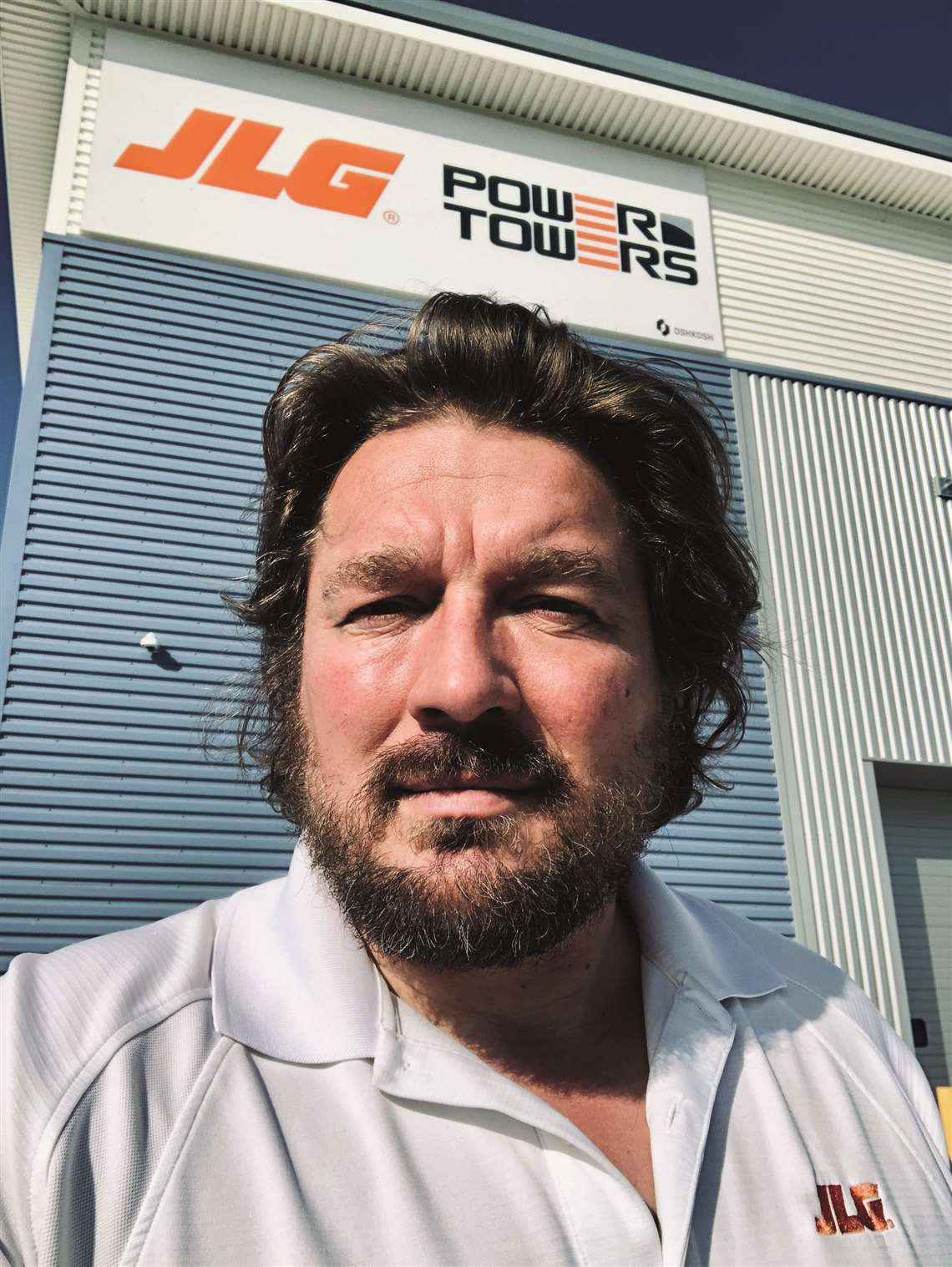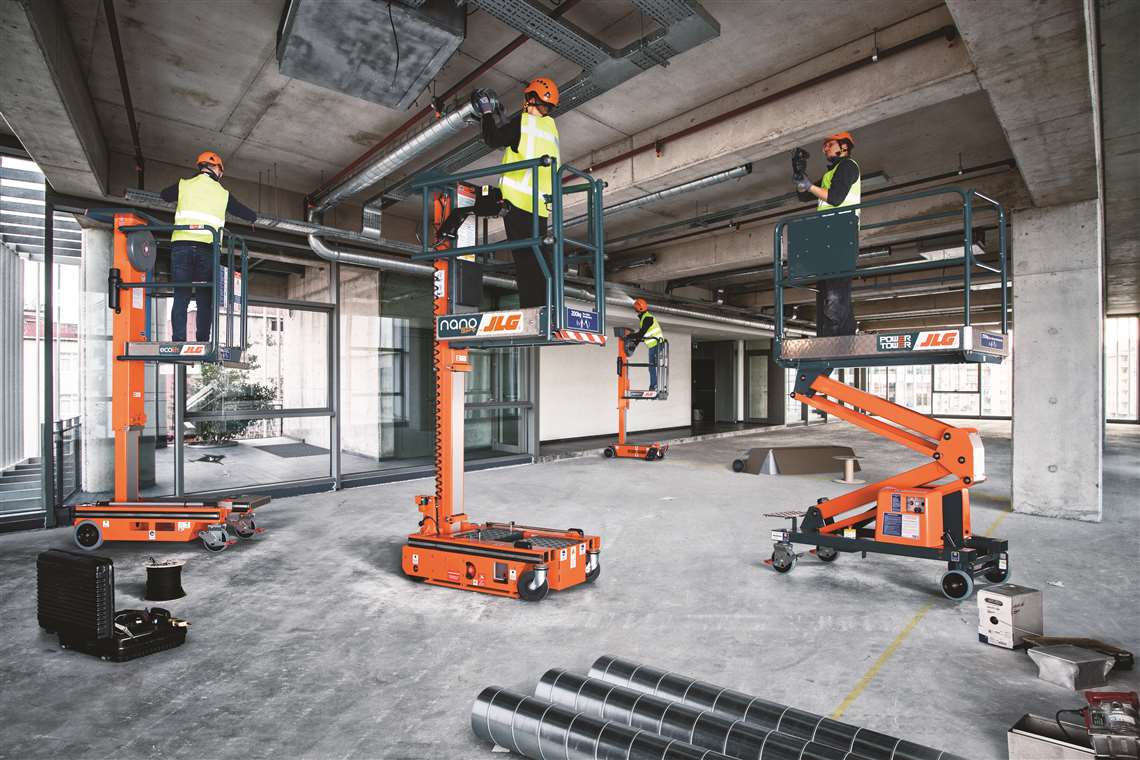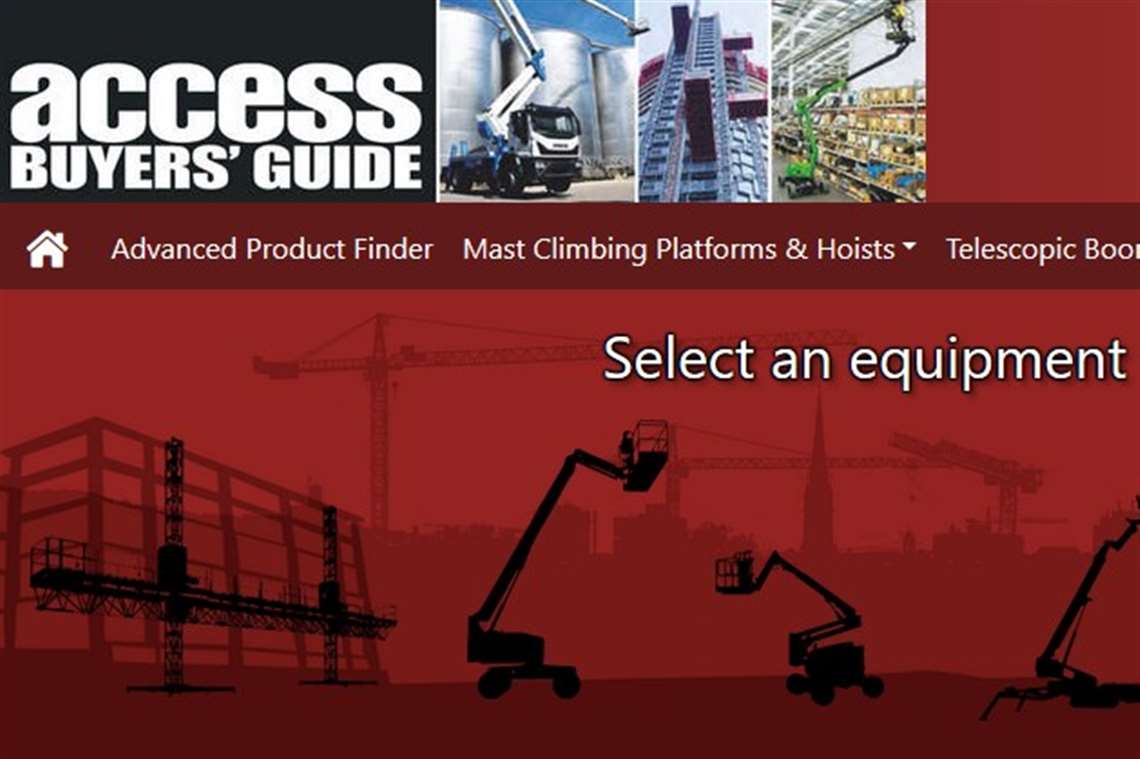Interview: Power Towers and low level access
30 March 2021
The managing director of Power Towers, Jonathan Dawson, shares the company’s developments and goals since its acquisition by JLG.
 Johnathan Dawson, MD, Power Towers
Johnathan Dawson, MD, Power Towers
Power Towers is a pioneer of the low level access equipment sector and a driving force in the effort to expand awareness of what these products can offer to a more global audience.
Based in the UK, Power Towers was acquired by JLG Industries in 2015 and has been led by managing director Jonathan Dawson since 2019. Since the acquisition it has grown from a primarily UK-led business, thanks initially to the Work at Height regulations introduced to the UK in 2005, providing strict rules to ensure such work is properly planned and carried out. Today, more than 50% of the company’s sales are found outside of the UK market.
According to Dawson, the traditional dominance of the UK in low level access reflects a misunderstanding about the market. “There’s often a misconception that the UK is legislation-driven for low level access and those are the reasons for its dominance in the global market.
“That is true in regard to how the market started but while there are those working at height regulations, the UK has also realised the benefit of low level access for efficiency gains compared to mechanical methods, [such as ladders and podiums].”
Another key factor of the low level access platform sector is its distinction from standard access equipment, like scissor lifts. While the end user of low level access is often a rental customer, they are more likely to be from a smaller tool hire background, for example mechanical electrical contracting work, rather than access equipment.
“There’s still an adoption of low level access by traditional access rental companies but it goes way beyond that and some of our largest customers don’t own a scissor lift,” says Dawson, “And they have a different approach and different price point to what access rental companies might expect.”
Strategic partnerships
One of the approaches Power Towers is taking is through the formation of partnerships to help drive market understanding. “One of our key strategies is to find open minded customers that understand it’s not just a bolt on to an existing fleet of products,” comments Dawson.
 Power Towers’ Nano SP, Ecolift and Picolift.
Power Towers’ Nano SP, Ecolift and Picolift.
In October last year Power Towers announced a supply agreement with major European generalist rental company Boels Rental. Boels has invested in a range of the company’s equipment, including the Peco and Ecolift - manually powered products with 3.5m and 4.2m working heights, the Nano SP - a self propelled model, with a 4.5m working height and a 50cm platform extension for up and over work, and a number of Power Tower push around lifts with powered elevation to 5.1m.
Dawson adds, “As a generalist rental company Boels has a broad offering of products and low level access is more akin to the smaller items they rent than the larger access equipment. We have worked closely with them to develop the method change message in the Netherlands and markets they operate in and it has been a great success.”
There is also a bid to develop partnership beyond rental. Historically, 95% of sales have gone to the rental sector and now there is a move to target specific applications to help drive a “ladders last” policy, in for example facilities maintenance, as well as wider construction. “You will never completely replace a ladder or podium because they are an easy solution to a problem; they are very manoeuvrable.”
As Dawson explains, European EN280 access equipment standards requires a significant amount of weight to be designed into aerial platforms, which makes it difficult to move between floors, unless there is an elevator, unlike an everyday ladder.
Therefore, Dawson adds, “There will always be a place for mechanical products but also for low level access platforms, given that it is a safer, quicker and more efficient way of working.” For example, Dawson adds, “A single Ecolift is an expensive product compared to a ladder. But how expensive is that compared to falling off a stepladder? It is nothing. And people do fall off step ladders, it’s the nature of them.”
One of the major benefits of being owned by JLG is the reach that can be found through the group’s global network. In turn, Power Towers supports JLG by increasing its understanding of the low level access sector.
Outside of the UK, it is European markets that are currently seeing the largest proportion of sales for Power Towers’ products; notably Germany and France, with the Benelux region rapidly becoming a large market and Spain having provided strong sales in recent years.
Global goals
Previously a strong market, the Middle East is now challenging, not just for low level access but across the board. While Power Towers has produced a number of products for the oil & gas industry in the region, thanks to the sector’s safety-led environment, it is dependent on the volatile oil prices.
“There are more ups and downs in the Middle East, partly because there is not the broad based manufacturing there that you find in Europe, so you don’t have additional industries beyond rental companies.”
North America is a major opportunity, yet there is a long way to go before low level access becomes widely adopted. However, the continent is firmly in Power Towers’ sights and there is a strategic plan to develop the market.
“When you want to drive method change for people working at height you have to get the buy-in from the lead organisations,” explains Dawson. As happened in the UK, the breakthrough will come when major contractors demand the use of low level access on worksites, Dawson explains. That outlook then trickles through to the rest of the industry.
Again, it is also a case of educating customers who use ladders or even standard powered access equipment, for example a 19ft scissor, to carry out work that a self propelled or pusharound low level access platform would be more suited to.
Dawson is confident of the future and is backed by a parent company that is equally ambitious. Last year Power Towers quadrupled the size of its production facilities, based in Leicester, UK. And as Dawson explains Brexit, had no impact on the decision for US-based JLG to continue with those plans. “We went ahead despite the outcome of Brexit. The UK is not a bad place to manufacture and not an expensive place to produce in European terms.” There is now a plan to concentrate on evolving the product range, with new attachments for the Peco and Ecolifts soon.
There is much to be done to convince global markets of low level access, yet there is a world of opportunity. Dawson concludes, “We are looking to take people off mechanical means of access and into low level machines. That’s not an easy sell and it takes work, but once you start on the right path it is quite easy to grow.”



